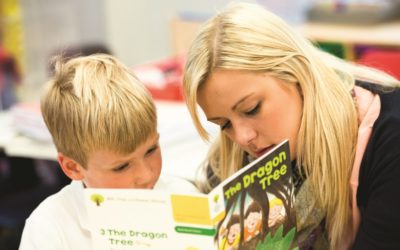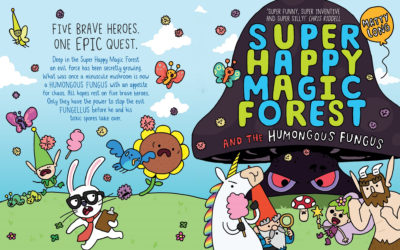Educational publishing expert Andrea Quincey explains why reading schemes are important, and what the different colours, bands and levels actually mean.
Blog posts for: Reading & phonics
Establishing a reading habit for the summer holidays and beyond
There are so many reasons to read with your children, this summer holiday and beyond. Read Mary Hamley’s tips on how to encourage a daily reading habit.
Preparing for the phonics screening check
The phonics screening check is an informal way for schools to assess your child’s progress in reading. Sarah Loader shares tips for supporting your child’s development at home.
Book of the Month: Oxford Phonics Spelling Dictionary
The Oxford Phonics Spelling Dictionary is packed with words ordered by phonic sound to help young children learn how to spell. Enter our competition to win a free copy.
How reading programmes can help junior readers
Once your child has mastered decoding, it can be liberating to choose whatever books they like – but there are still benefits to structured reading schemes.
Developing reading skills as your child gets older
Once your child has mastered phonics and word-reading, where do they go next? Here are our ideas to keep your 7–11-year-old’s reading skills developing.
Book of the Month: Super Happy Magic Forest and the Humongous Fungus
Five brave heroes, one epic quest… It’s time to head back into the Super Happy Magic Forest! Enter our competition to win your free copy.
Learning to read in Reception
Find out what sort of books to expect to come home in your child’s book bag, and get top tips on how best to support your child.
Great books to get boys reading
John Dougherty shares his top picks for books to encourage and inspire your son to read.
Carry on reading aloud: the benefits of sharing books with older children
Few things are more important than reading aloud to our children. James Clements gives his advice on how to keep your child reading aloud, even after they are reading independently.
Four top tips for getting the most out of non-fiction
There are lots of great reasons to share factual books with your child. Here are our top four tips for getting the most out of reading non-fiction.
A case for non-fiction:
five reasons to read non-fiction with your child
Education expert James Clements outlines five benefits of reading non-fiction, and gives us his top non-fiction reads for ages 5–11.











